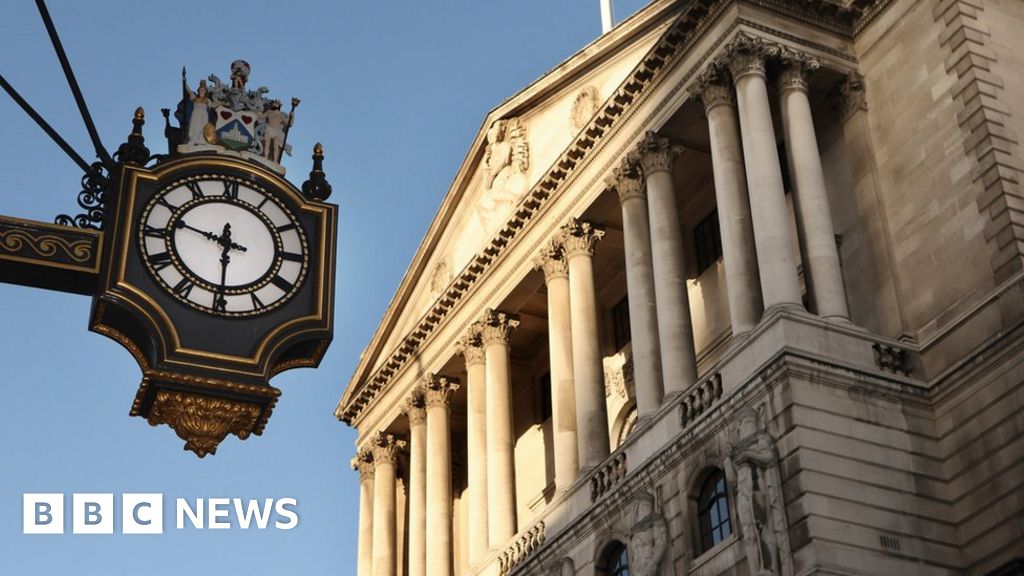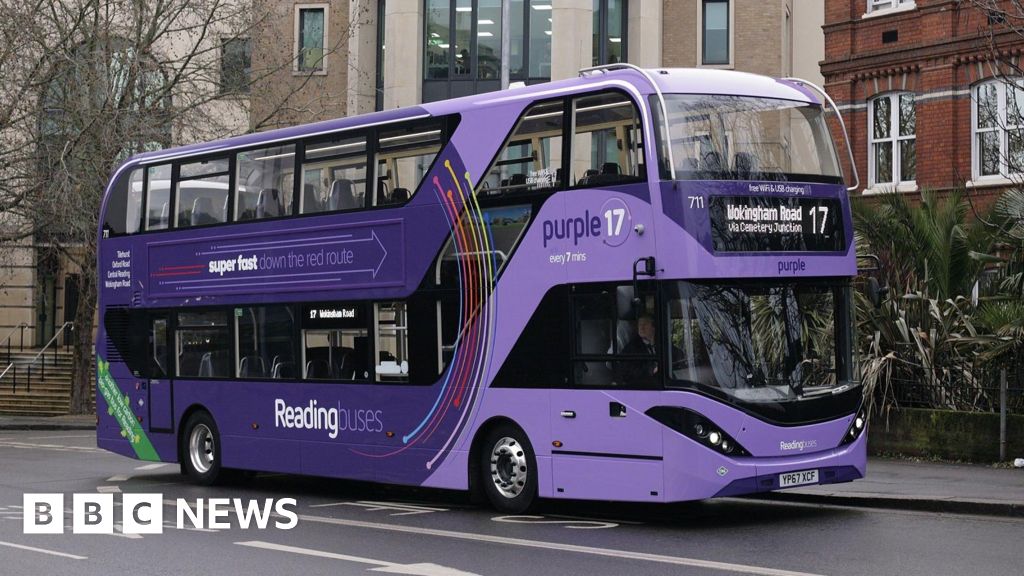- By Michael Race
- Business reporter, BBC News
Image source, Getty Images
Interest rates are expected to be held at 5.25% for the sixth time in a row by the Bank of England on Thursday.
The decision comes as inflation, which measures price rises over time, remains above the Bank’s 2% target at 3.2%.
As well as the interest rate decision, the Bank will also release its latest forecast estimating what will happen to inflation and the UK economy.
The report comes amid pledges from both major political parties on how they would drive economic growth.
The health of the UK economy has been in the spotlight with a general election set to be called in the coming months, and economic policies likely to be a key battleground in the quest for votes.
While economists have predicted that rates will be held at their current 16-year-high rate on Thursday, most expect the Bank to cut rates for a first time in the summer.
The Bank raised, and then kept interest rates at a high level, in a bid to slow the pace at which consumer prices have been rising and ease the cost of living.
The theory behind increasing interest rates to tackle inflation is that by making borrowing more expensive, more people will cut back on spending and that leads to demand for goods falling and price rises easing.
But it is a balancing act as high interest rates can harm the economy as businesses hold off on investing in production and jobs.
Prices starting rising quickly as demand for goods increased when Covid-related restrictions were lifted. Energy and food prices then soared following Russia’s invasion of Ukraine, leading to inflation peaking at 11.1% in October 2022 – the highest rate in 40 years.
The Bank’s base interest rate dictates the rates set by high street banks and lenders. The higher level has meant people are paying more to borrow money for things like mortgages, but savers have also received better returns.
Laith Khalaf, head of investment analysis at AJ Bell, said it was “almost certainly too early for the Bank of England to pull the trigger on a rate cut right now”, especially against the backdrop of the US central bank, the Federal Reserve, warning its interest rate could stay high.
Mr Khalaf said markets suggested it was a “coin toss” on whether interest rates would be cut in June, but added investors were leaning more towards an August reduction.
He said while it is “easy to get drawn into obsessing” over when the first rate cut will occur after a long period of high interest rates, it was “important to zoom out a bit and take a longer view too”.
“While the next interest rate move is almost certainly down, there isn’t going to be a sudden collapse in rates thereafter,” he said.
“Policy will adjust slowly and the end point won’t be the near zero interest rates of the 2010s.”
The Bank of England has previously said it expects inflation to fall slightly below its 2% target by the summer.
Its governor Andrew Bailey has sounded more optimistic on rate cuts and has suggested the 2% target does not have to be achieved before rates are cut – just that the Bank’s policymakers have to be “convinced” it will.
The UK fell into economic recession at the end of last year when the economy shrank for two consecutive three-month periods, but policymakers believe the downturn might already be over.
On Friday, the latest official figures on the economy will be released, which will confirm whether or not the UK economy grew in the first three months of 2024.

Robert Johnson is a UK-based business writer specializing in finance and entrepreneurship. With an eye for market trends and a keen interest in the corporate world, he offers readers valuable insights into business developments.








